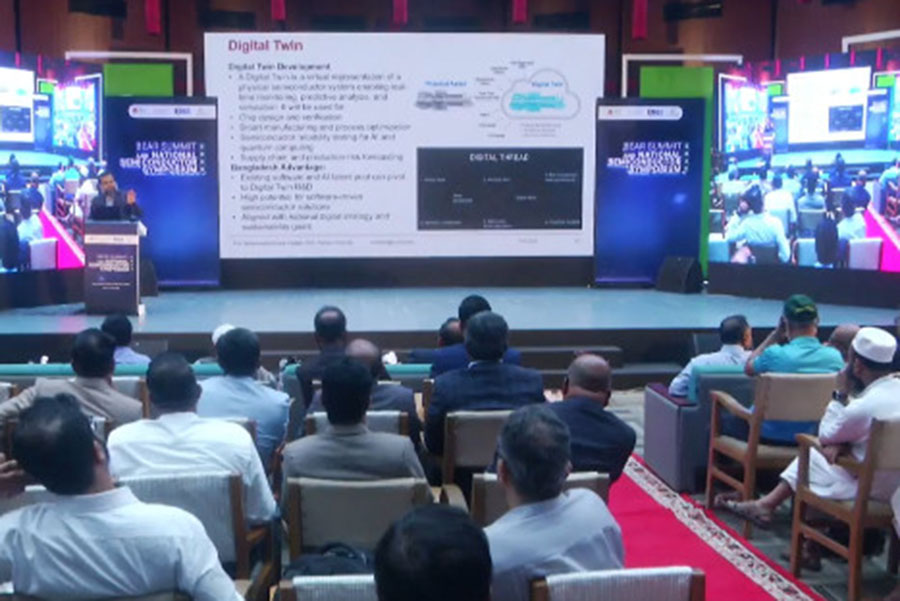
Published :
Updated :

The country's largest-ever science and technology-based summit - the 'BEAR' (biotechnology, electronics, artificial intelligence, and robotics) Conference and the Bangladesh National Semiconductor Symposium 2025 - kicked off at the National Science and Technology Complex in the capital's Agargaon area on Wednesday.
The Information and Communication Technology (ICT) Division, EDGE Project, and Bangladesh Computer Council (BCC) have jointly organised the landmark event, which is the first of its kind, with the support of the World Bank.
The event, organised with an aim of positioning Bangladesh as a global deep-tech hub, will continue today (Thursday).
At the inauguration ceremony, Special Assistant to the Chief Adviser on ICT and Telecommunications, Faiz Ahmad Taiyeb, announced plans for making significant investments in the semiconductor sector and major reforms in the digital services landscape.
"The government aims to deliver various services - such as passport, NID, and trade licence - through a unified 'Citizen Services' portal."
He also emphasised the importance of developing data privacy and cloud-first strategies, expanding national data infrastructure, and equipping the country's youth for the Fourth Industrial Revolution.
The symposium features demonstrations on cutting-edge innovations: amphibious robots designed for land, water, and even Mars; AI-powered aquaculture systems; mosquito control technologies; hyacinth-cleaning robots; Bengali-speaking conversational AI; IoT-based cattle management; and shoe design technology based on AI footprint scanning - all powered by semiconductor-based solutions.
Nine leading global experts, vice chancellors, industry leaders, student innovators, and representatives from major political parties, including BNP, Jamaat-e-Islami, and NCP, are participating in technical sessions and policy discussions.
Speaking at a press conference on Tuesday, ICT Division Secretary Sheesh Haider Chowdhury declared the government's firm commitment to building a semiconductor ecosystem.
"This is the first time in our history that the government, academia, industry, and expatriate talents have come together for such an initiative."
"We are finalising the draft National Semiconductor Policy and have proposed 5-10 per cent cash incentives for semiconductor exporters."
He projected that Bangladesh could earn up to $150 billion from semiconductor exports in the next decade by training just 20,000 skilled professionals.
The conference convener, Professor Md. Mostafa Hossain of Purdue University, said the event, held on the anniversary of the July Revolution, symbolised a renewed vision for the country.
He underlined the importance of creating a digital corpus of Bengali literature in OCR format to enhance local-language AI capabilities.
bdsmile@gmail.com


 For all latest news, follow The Financial Express Google News channel.
For all latest news, follow The Financial Express Google News channel.